Indigenous groups in the Amazon are fighting back against missionaries
Some Indigenous communities in the Amazon say that US missionaries are changing their cultures and they’ve had enough, writes Terrence McCoy
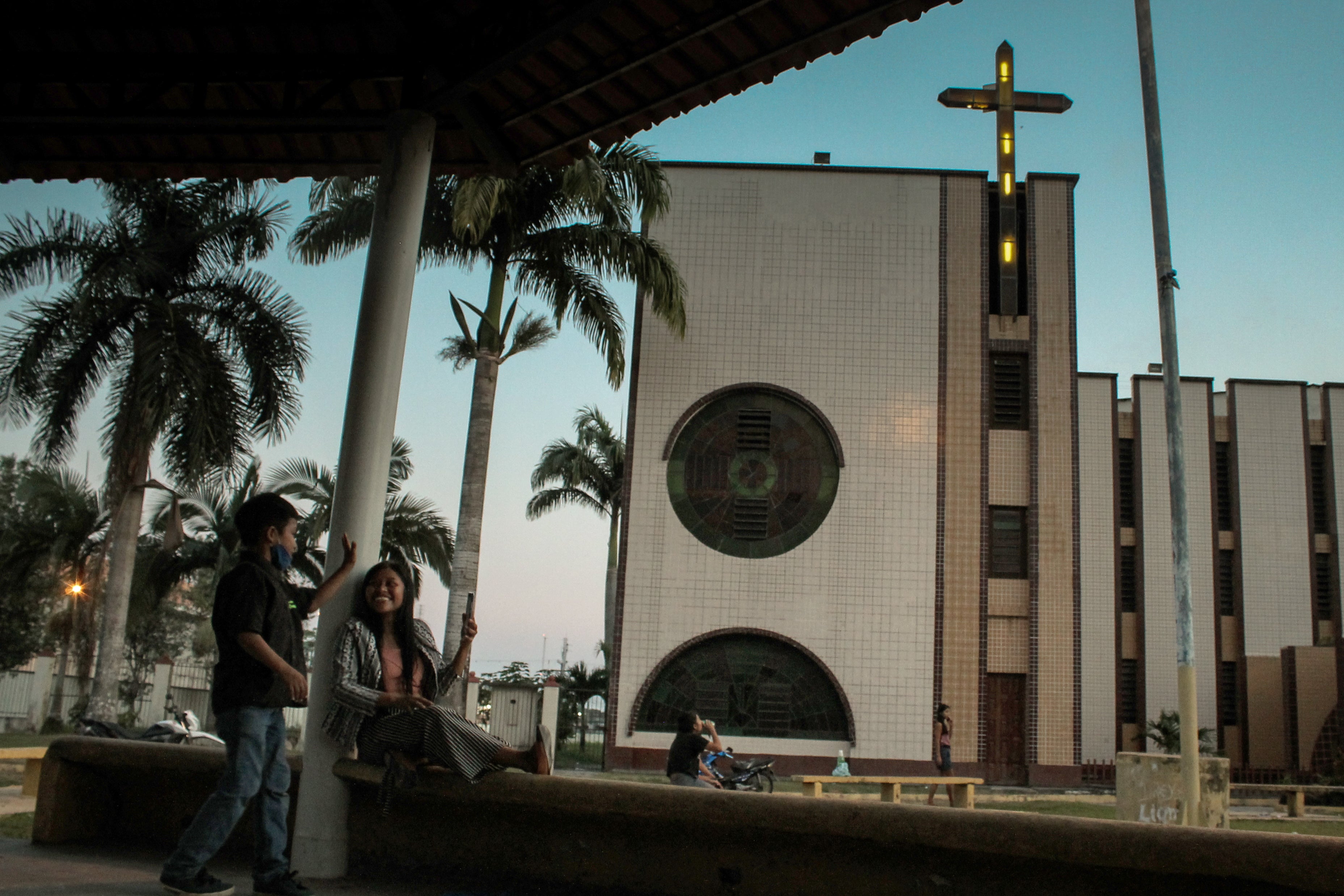
Your support helps us to tell the story
From reproductive rights to climate change to Big Tech, The Independent is on the ground when the story is developing. Whether it's investigating the financials of Elon Musk's pro-Trump PAC or producing our latest documentary, 'The A Word', which shines a light on the American women fighting for reproductive rights, we know how important it is to parse out the facts from the messaging.
At such a critical moment in US history, we need reporters on the ground. Your donation allows us to keep sending journalists to speak to both sides of the story.
The Independent is trusted by Americans across the entire political spectrum. And unlike many other quality news outlets, we choose not to lock Americans out of our reporting and analysis with paywalls. We believe quality journalism should be available to everyone, paid for by those who can afford it.
Your support makes all the difference.Eliseio Marubo watched as the tribal leaders assembled before him. First came the Matsis of the White River. Then the distant Kanamari. Then both factions of the Marubo people. All had come, at his request, to put aside their differences and discuss what he called a common adversary.
Their forest was beset by outsiders – illegal gold miners, land grabbers, deforesters – but the time had come to confront the ones who pre-dated them all.
“Missionaries,” Marubo said.
The meeting hall was at the gateway of one of the largest forested Indigenous territories in Brazil called the Javari Valley. With its estimated population of 6,300 Indigenous people, it’s considered the world’s largest repository of uncontacted peoples. On a planet with vanishingly few places beyond the reach of modern civilisation, the valley’s enduring isolation has made it one of the most alluring places for evangelists trying to reach the last people to have never heard the name Jesus Christ.
Missionaries call such people the “unreached”. Few groups, if any, have been as committed to contacting them as American evangelists. They have produced elaborate maps to identify where they live. They have flown planes, purchased helicopters and piloted boats to reach them. Some have died, or been killed. Millions of dollars have been pumped into the work.
But the biblical commission that followers of Jesus “make disciples of all nations” is increasingly colliding with the laws of man in Brazil, where the right to voluntary isolation is enshrined in the constitution and where it’s illegal to contact isolated Indigenous groups without government permission. Now, for the first time, Indigenous communities in the Javari Valley are mounting a unified defence, using the tools of the state against the unwanted and, they say, at times illegal religious advances into their territories.
“They are invading our lands without our permission,” Marubo, 40, told the leaders. “And without the permission of the authorities.”
In March 2020, an Indigenous evangelist accompanied by an American missionary allegedly threatened to burn down Marubo’s union hall, witnesses said
Stout, wavy-haired and chain-smoking, Marubo is the first Indigenous lawyer to have come out of the Javari Valley. The only legal representative for its peoples, last year he filed on their behalf what is believed to be the first lawsuit by an Indigenous group aimed at expelling Christian missionaries from their territory. A victory could set a legal precedent, further restricting access to isolated groups and reducing the historic role American evangelists have played in the forest.
The Javari Valley Indigenous Peoples Union alleges that two American missionaries and the Brazilian husband of a third plotted to reach the isolated Korubo people, potentially exposing them to the coronavirus.
A judge ordered the preliminary expulsion of the missionaries, along with the Brazilian offshoot of a large American evangelist organisation, during the pandemic. But Marubo wasn’t satisfied. He had heard rumours that the Americans had returned. He looked back at the assembled leaders.
“I need to know what you know,” he said.
Marubo didn’t want the missionaries out only during the pandemic. He wanted them gone for good.
Marubo knew most Indigenous people are on his side but not everyone. Some were now evangelicals themselves. Among them were those willing to take drastic action.
In March 2020, an Indigenous evangelist accompanied by an American missionary allegedly threatened to burn down Marubo’s union hall, witnesses said. In November, in another part of the forest, dozens of Jamamadi occupied a government indigenous affairs outpost on the Purus River to protest the expulsion of American missionary Stephen Campbell, accused by authorities of illegally entering isolated Indigenous land. The Jamamadi declared in a letter that they wouldn’t allow government workers on their land unless Campbell was allowed to return.
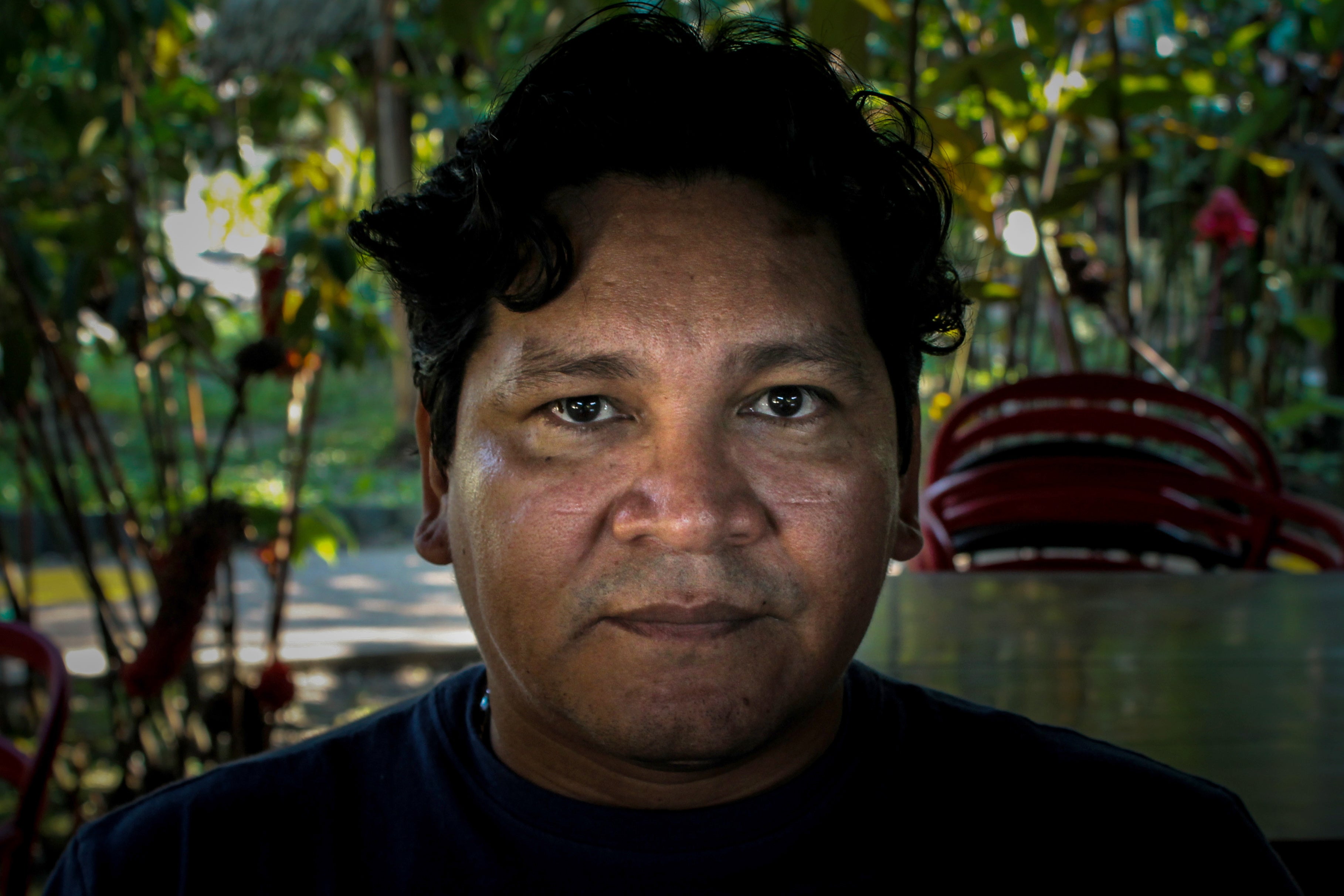
Campbell described the allegations in an email as “rumours and speculation”. He said he had always, “strived to help the Government/Indigenous relationship”.
Marubo’s experience with missionaries had been different. They were his first experience with white people. He remembers their arms swelling red with insect bites, the sweets they gave and his first taste and the day his remote village told them to leave. They had called their culture of polygamy and other practices demonic, offending the community. To Marubo, that was everything he needed to know about missionaries.
“Bible warriors,” he called them.
As years went by, he saw the forest’s religious geography shift. Evangelicalism overtook Catholicism as the dominant religion. Missionaries gained political positions in which their decisions could directly affect isolated Indigenous groups. Their churches came to dot virtually every street in remote cities.
But it wasn’t until recently that Marubo began to think of missionaries as a threat. He began receiving radio messages. Distant villages told of missionary incursions. Early last year, as the pandemic bore down on Brazil, contacts close to the missionaries said the Americans were planning a trip to the isolated Korubo.
Marubo grew enraged. So he tried something new: a lawsuit.
The defendants included New Tribes Mission Brazil; Wilson Kannenberg who with his American wife, Lori, runs a missionary organisation; Josiah McIntyre, an Alabaman missionary and the thin, bearded American whom Brazilian authorities have accused multiple times of entering isolated territories without official permission, Andrew Tonkin – “Pastor Andre”.
Tonkin arrived in the region in 2007 saying he felt as if he had no choice but to come. “He calls the shots. He gives direction and instruction,” he said. “The Lord led me to Brazil.”
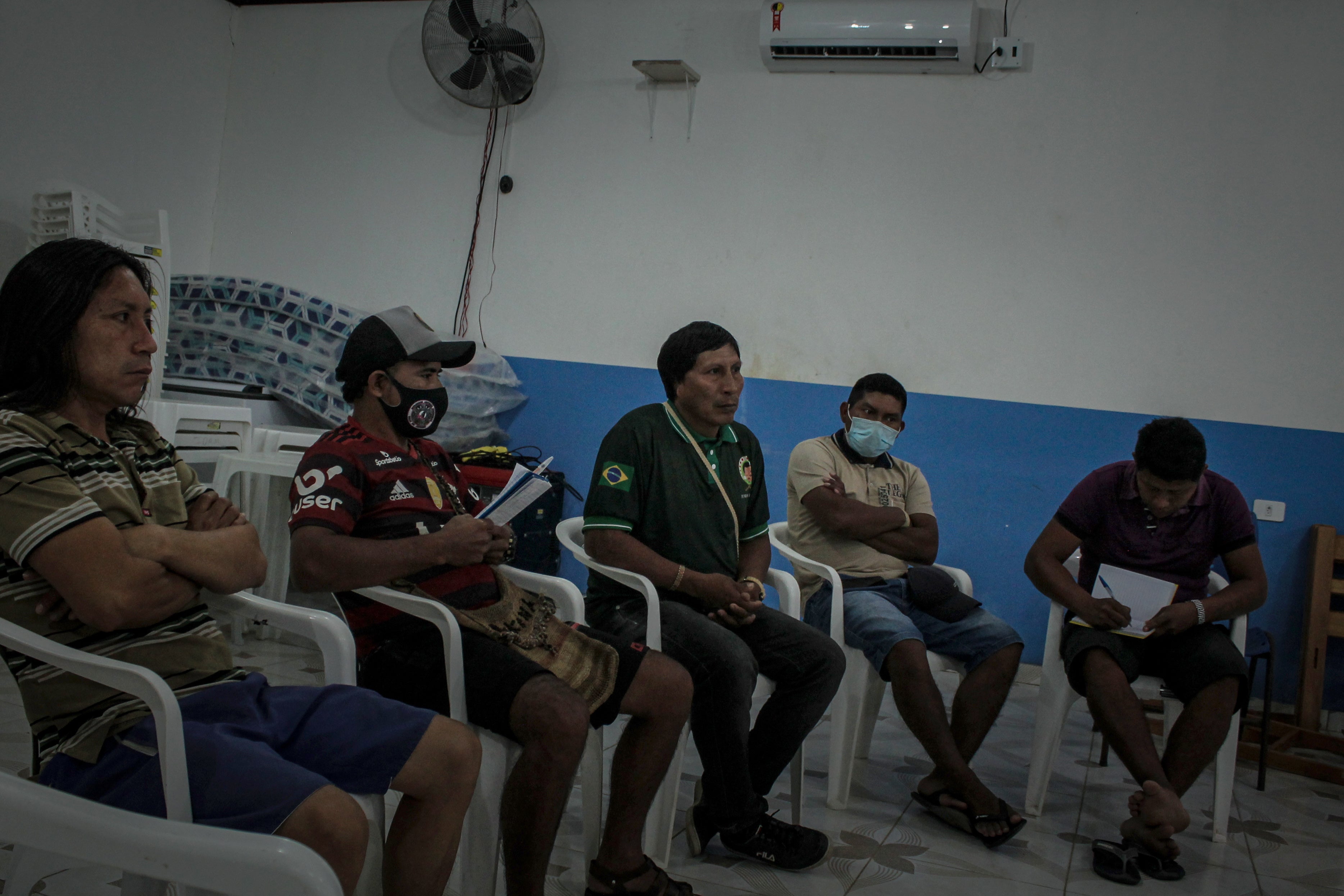
Called to be a “fisher of men”, Tonkin said, he became the affiliate of a Free Will Baptist missionary group targeting the valley’s unreached. He befriended Kannenberg, a pilot who preaches of his remote Amazonian missionary work across rural America, and he started posting his exploits on social media: Tonkin, living in a hut in a Marubo village then flying to remote forests in a private plane, then canoeing far upstream holding a GPS, “#JesusGuidesMyBoat”.
Much of Tonkin’s work – detailed in his newsletter, Amazon News – followed what anthropologists describe as the Amazon’s third wave of the proselytisation. American evangelists once travelled freely to isolated villages but in 1987, the country, seeking to curb the spread of diseases to Indigenous communities, moved to its no-contact policy. Much of the burden of proselytisation then shifted to converted Indigenous people, who could access the uncontacted more freely.
Tonkin, his writings show, encouraged Indigenous converts to evangelise. But he couldn’t let go of his desire to go personally, according to associates and government reports. In June 2014, a government medical worker journeyed far up the Rio Itui to visit the Marubo people in the village Boa Vista. The worker was surprised to see in the middle of remote forest “a strange person” wearing a baseball hat, steering a canoe, head bowed low. The man, according to FUNAI, the National Indian Foundation, was Tonkin, apparently flown in on Kannenberg’s plane.
Neither Kannenberg nor Lori responded to repeated requests for comment.
Tonkin told investigators he hadn’t been aware he needed authorisation and the case was dropped but Indigenous people say he wouldn’t stop. Marubo’s friend Moises Marubo told The Washington Post that Tonkin spoke often about reaching isolated people: “He said people would die if they didn’t hear the word of God.”
Indigenous missionary Pepe Mayoruna said he had watched in recent years as Tonkin plotted missions to isolated peoples with other Americans and said: “He said he wanted to do what God had told him to do.”
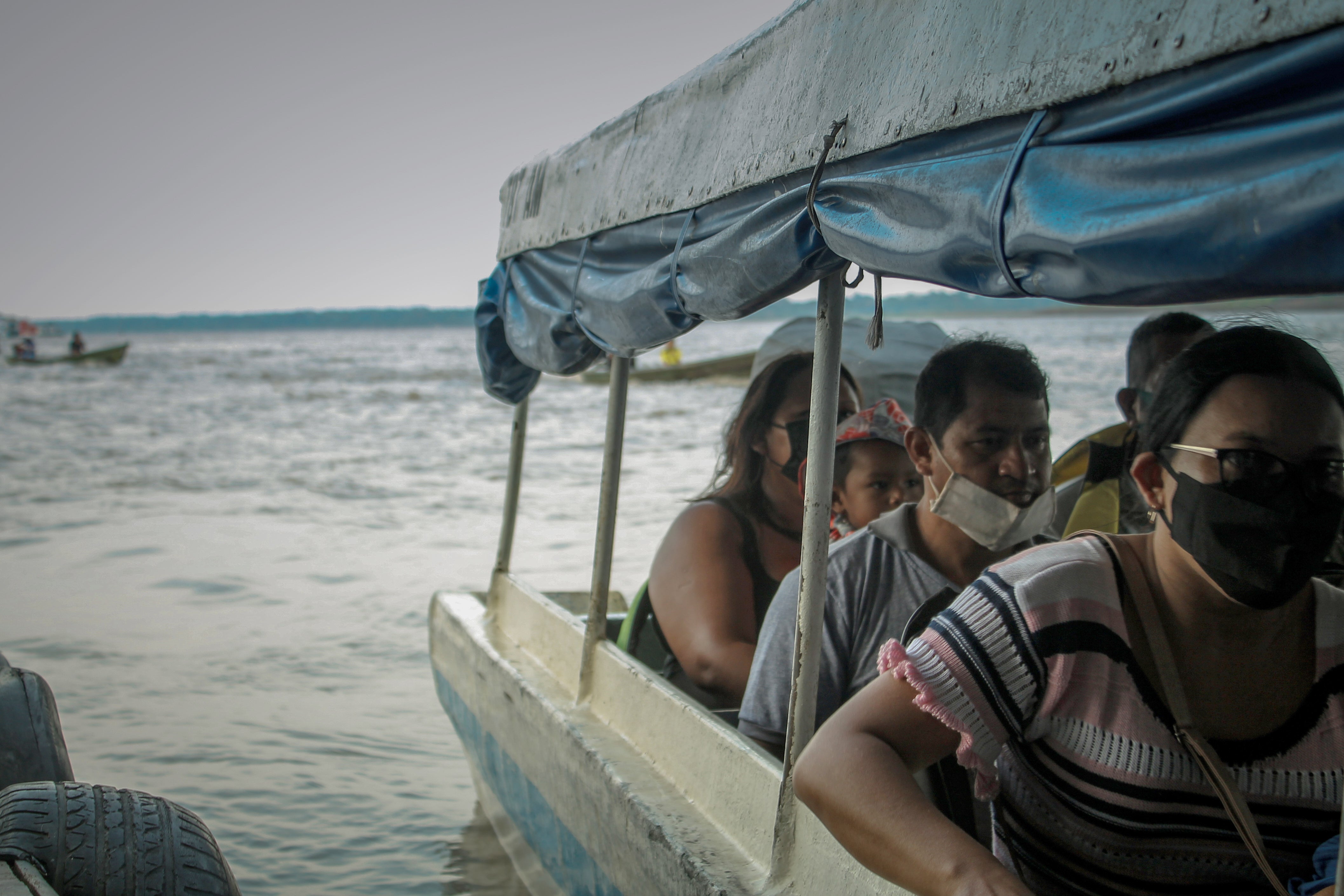
In 2019, Tonkin told a Baptist congregation he was feeling good. He’d once faced prison time in Brazil but that “corruption and evilness” was now gone, he posted on social media. The country had elected a “very conservative” president in Jair Bolsonaro and the government officials who had given him a hard time were gone, replaced by “believers” who were “really excited” about missionary work.
“That’s just God,” Tonkin rejoiced. “Ain’t that him?” He was poised to return to the Javari Valley to reach a “dark region that hasn’t been exposed to the Gospel”.
Tonkin is again under investigation, Brazilian prosecutors said. He has not been charged with a crime; in a letter to Funai, he dismissed the allegations against him as “fake news”. He said he has always, “conducted himself in observance of applicable Brazilian law”.
Tonkin declined to be interviewed. In a written statement, he did not address questions.
“We have had the privilege to preach the liberating gospel of Jesus Christ to Brazilians, Colombians, and Peruvians all located in the Javari valley. The isolated people groups are there as well,” Tonkin wrote. “This is the beauty of the gospel: It’s for everyone.”
Tonkin says he now lives in Iraq. Indigenous neighbours expressed ambivalence over his time among them. Some missed him. Others said he did little to help the community. The hut he inhabited in the Marubo village has been torn down.
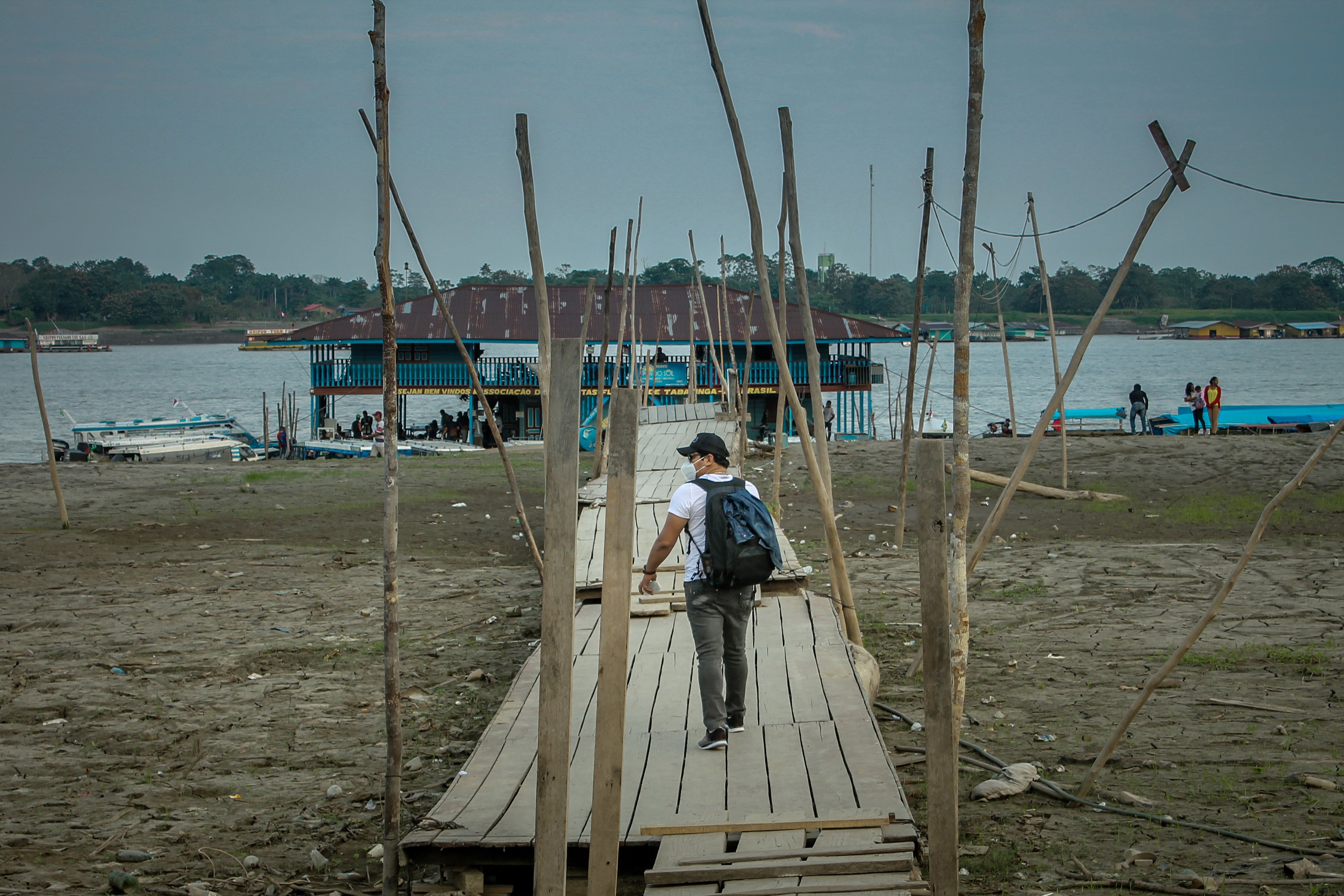
Another American missionary decided to stay. At the end of a quiet street in Atalai do Norte, he lives with his wife and four children in a large house he built himself. Blond and muscle-bound – nicknamed “He-Man” by locals – Josiah McIntyre, 38, has no intentions of leaving.
“I was called to live here,” he said.
McIntyre dismissed allegations that he had tried to enter isolated territories as gossip. He said he does not plan to contact isolated groups and contested assertions that missionaries were changing Indigenous culture. “You now have Indians hooked to pornography,” he said. “STDs and drugs and alcohol are on the rise. You’re now seeing gay Indians. They say we’re trying to change their culture but I’ve never introduced any of those things.”
Passing by outside was fellow missionary Ivan Juaquita, who is clear about his desire to venture into the valley. The 67-year-old says God called him from Colombia to Atalaia do Norte. Soon he’ll leave for the forest and the Indigenous communities. He believes the apocalypse is at hand. It will come when he’s in the forest, among the Indigenous.
He looked to the sky, feeling the weight of his people’s expectations. He knew the American missionaries wouldn’t give up without a fight. But neither would he
Juaquita went to his rented apartment, where he pulled down his hammock, his tent and pack. This was all he planned to take. He said he wasn’t worried about spreading diseases. God would protect him and the Indigenous. He started to laugh. The Brazilians had scant control of the forest. He didn’t foresee any problems.
“I’m not interested in following the laws of men,” he said.
“The world is about to end,” he added. “Whoever says it isn’t is crazy.”
In the meeting hall, Eliesio Marubo listened as the Indigenous leaders spoke, years of frustration pouring out.
“The missionaries search for young people and corrupt them with their ideas,” said the representative of the Matses people.
“When the missionaries wanted to enter our villages, we told them we wouldn’t change our culture,” said the Kanorami representative.
“It would be better if they stayed in the cities,” said another leader.
Eliesio looked to Gilberto Marubo. He lived near a village where New Tribes missionaries had long operated a school and a church. If anyone had current information on the missionaries’ activities, Eliesio believed, it would be Gilberto.
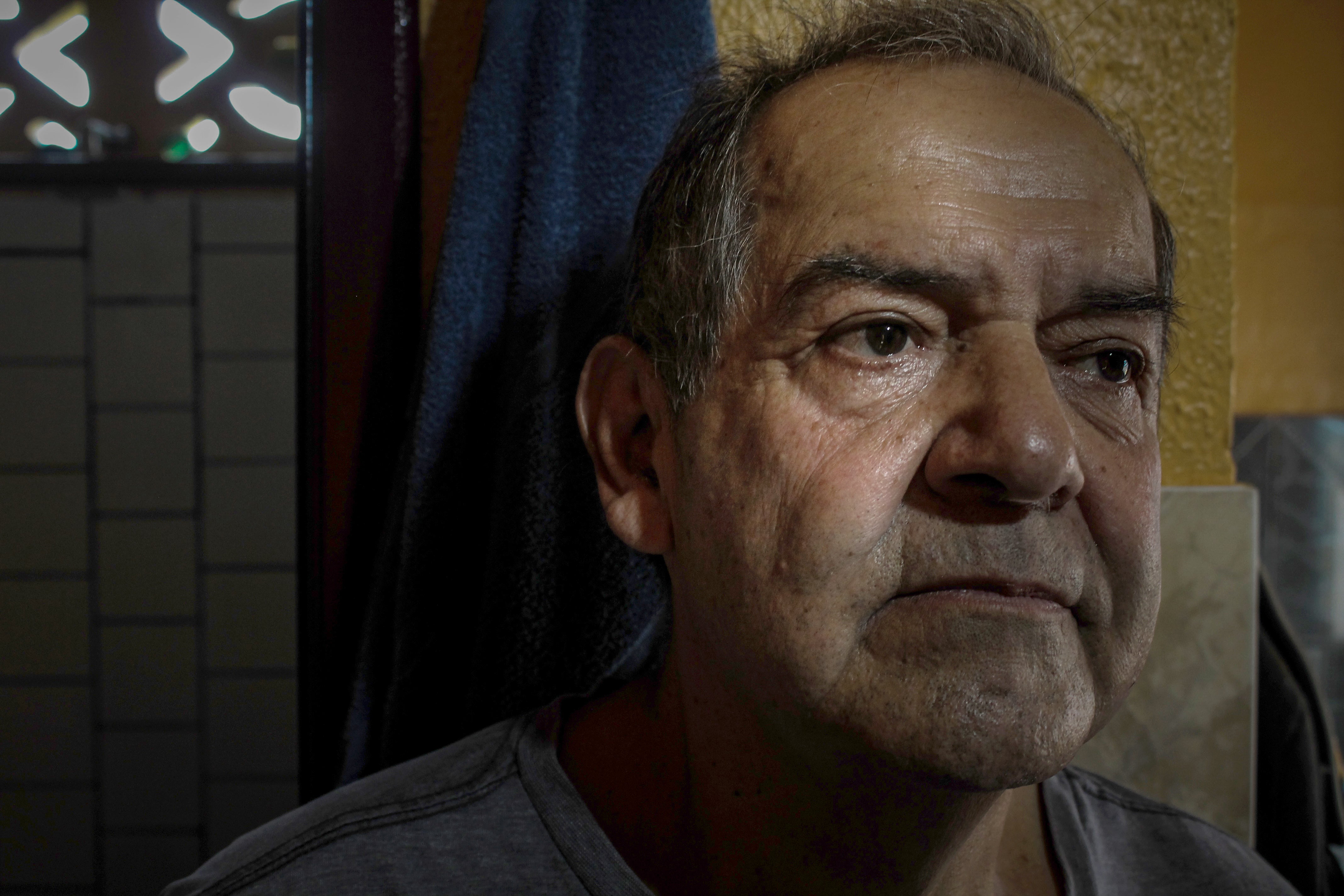
“The American missionaries have lived there for 65 years,” Gilberto said. He said they had turned the community against itself, dividing it between those who wanted them and those who didn’t. He said the missionaries had recently gone to the village to solicit signatures, in violation of the court order, to support their official request to return.
New Tribes denied the allegation. “No member of the mission has returned,” spokesperson Eliana Camejo said. “The information you have is wrong.”
Marubo closed his computer, angered. He said he planned to file for another injunction against the missionaries. “This isn’t persecution,” he said. “We just want them to follow the law.”
Murmurs of agreement.
“My intention is to never let them return,” Marubo said. “They only create problems.” More murmurs of agreement.
The meeting ended. Marubo stepped outside. A light rain had begun to fall.
He looked to the sky, feeling the weight of his people’s expectations. He knew the American missionaries wouldn’t give up without a fight. But neither would he. Some of the unreached – no matter what the Christian God said – were meant to stay that way. He stamped out a cigarette and went back inside. The rain was picking up.
Gabriela Sa Pessoa and Heloisa Traiano contributed to this report.
© The Washington Post




Join our commenting forum
Join thought-provoking conversations, follow other Independent readers and see their replies
Comments